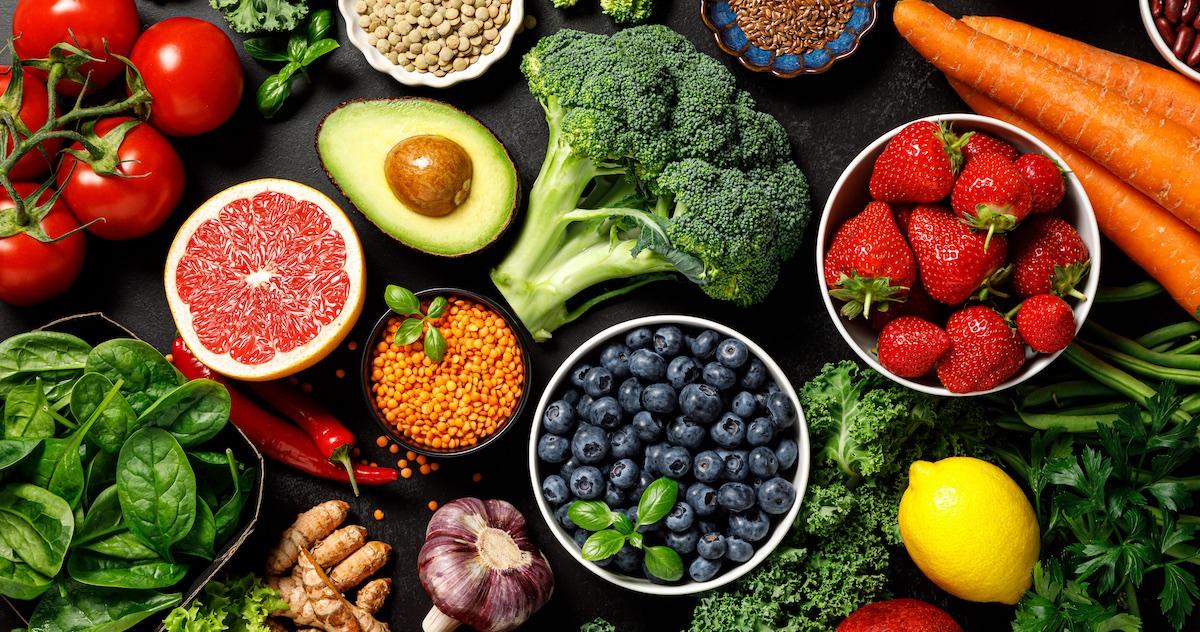Ultra-Processed Foods Linked to Depression, Diabetes, and Early Death: What Foods to Avoid
Avoiding ultra-processed foods could help prevent certain diseases, according to various studies.
Updated May 9 2024, 9:16 a.m. ET

With so much information in the ever-evolving field of nutrition, hearing news about how healthy (or unhealthy) certain food items are can be overwhelming and confusing. With various reports published in 2022, 2023, and 2024 that highlight the link between “ultra-processed foods” and a number of conditions — including cognitive decline, dementia, cardiovascular disease, depression, diabetes — many might be wondering, what are ultra-processed foods, anyway?
Keep reading for the key findings of these studies, a guide to what ultra-processed foods actually are (including a list of some of the most common ones), and what foods to focus on instead.

What are ultra-processed foods?
What exactly does “ultra-processed foods” mean? According to Harvard Health Publishing, ultra-processed foods are foods that are not in their original form; are made from substances extracted from whole foods, such as starches or fats; and/or contain non-natural added additives, such as salt, sugar, artificial colors or flavors, and preservatives.
Ultra-processed foods typically come in a package, and nutrition labels will include high amounts of salt, sugar, or fat.
What are some of the worst ultra-processed foods? Here's a list of ultra-processed foods to avoid eating too often.
Examples of these ultra-processed foods are:
- Frozen meals
- Sweetened beverages and sodas
- Processed meat, such as deli meat, hot dogs, pepperoni, or ham
- Fast food
- Chicken nuggets
- Ice cream
- Sugary cereal
- Jerky
- Canned soup
- Packaged snacks like cookies and chips
- Candy.

Ultra-processed foods are connected to cognitive decline in a 2022 study.
On Monday, Dec. 5, 2022, a study was published in the JAMA Neurology journal looking at a sample group of 10, 775 “ethnically diverse” individuals, all of whom were public servants between 35 and 74 years of age, from six Brazilian cities. The researchers, mostly from the University of São Paulo Medical School in Brazil, studied these subjects over the course of nearly 10 years, running from 2008 to 2017.
Then, from December 2021 to May 2022, the researchers analyzed the data. During this time, they discovered a significant association between high consumption of ultra-processed foods and a high rate of “global and executive function decline.”
As reported by The Hill, this decline specifically refers to developing dementia, cognitive function decline, and executive function decline at a quicker rate. (The news outlet also notes that previous studies have found links between eating a lot of ultra-processed foods and colorectal cancer, obesity, and premature death.)
Of the 10, 775 participants, a followup (conducted a median of an eight years later) revealed that those with who ate ultra-processed foods “above the first quartile” experienced cognitive decline at a 28 percent faster rate; and executive function decline at a 25 percent faster rate.
And because eating too many ultra-processed foods is associated with cognitive decline, the study’s authors propose that reducing one’s consumption of ultra-processed food could potentially reduce their risk of developing dementia or cognitive decline in middle age.
"These findings show that lifestyle choices, particularly high intake of ultra-processed foods, can influence our cognitive health many years later," co-author Natalia Goncalves, Ph. D., told Medscape Medical News.
In the study, the authors concluded that their findings “support current public health recommendations on limiting ultra-processed food consumption because of their potential harm to cognitive function.”
A fall 2023 study connected eating too many ultra-processed foods to depression.
In September 2023, researchers from the Harvard T.H. Chan School of Public Health published a study highlighting the connection between ultra-processed foods and depression, a condition that affects an estimated 5 percent of adults worldwide, as per the WHO.
For the study, published in JAMA Network, the team gathered data on diet and mental health from more than 31,000 middle-aged women between 2003 and 2017. At the start of the study, none of these women had been diagnosed with depression.
Overall, the researchers found that the women who ate at least nine servings of ultra-processed foods daily had a 50 percent higher chance of developing depression, when compared to the women who ate four or fewer servings of these foods daily.
The authors recommend that people — especially those who already suffer from depression or other mental illnesses — consume less ultra-processed foods.
Two November 2023 studies connect ultra-processed foods to cancer and other conditions.
In November 2023, European researchers published a study in The Lancet Regional Health, which studied a group of 4,461 people for a median of 11.2 years.
Overall, the research found that those who ate more ultra-processed foods (about 260 grams daily) had a higher risk of developing both cancer and cardiometabolic diseases (including strokes, diabetes, and heart attacks).
This association was even stronger for those who consumed ultra-processed foods in the following two categories: sweetened beverages and animal product-based processed foods.
Those whose consumption of ultra-processed foods was limited to desserts, snacks, plant-based alternatives, and frozen meals showed "showed no association with the risk of multimorbidity."
Also in November 2023, another group of European researchers published a study in the European Journal of Nutrition, which looked at the connections between two types of cancer: head and neck cancer (HNC) and esophageal adenocarcinoma (OAC).
The study looked at data from more than 450,000 participants over the course of more than a decade. They found that those who ate 10 percent more ultra-processed foods had a 23 percent greater risk of HNC, when compared to other study participants; that group also had a 24 percent higher risk of OAC, as explained by CNN.
Overall, the researchers found their study to confirm that more consumption of ultra-processed foods was correlated with a higher risk of developing both HNC and OAC, though they note that more research is needed on the topic.
An early 2024 study connected ultra-processed foods to serious illnesses including depression and type 2 diabetes.
In February 2024, research published in the journal The BMJ concluded that eating more ultra-processed foods comes with a higher risk of various health conditions. These include obesity, type 2 diabetes, heart disease, depression, and sleep issues.
The authors conclude that their findings should inspire public health campaigns encouraging people to reduce their consumption of ultra-processed foods.
“We found consistent evidence linking higher intakes of ultra-processed foods with over 70 percent of the 45 different health outcomes we assessed,” study author Wolfgang Marx told CNN.

A 30-year study published in 2024 suggests those who eat more ultra-processed foods have a greater risk of death.
On Thursday, May 9, 2024, a study published in the journal BMJ analyzed data from 100,000 participants over 30 years to study ultra-processed food intake.
The purpose of the study was to find correlation between ultra-processed food and mortality, of which the findings concluded that those who ate ultra-processed foods for more than three servings a day had a 4 percent higher risk of death, including a 9 percent risk of death from a neurodegenerative cause.
Dr. Mingyang Song, the study's lead author and associate professor of clinical epidemiology and nutrition at Harvard’s TH Chan School of Public Health, told CNN that different ultra-processed foods have different impacts. Ultra-processed multigrains, for example, are different than processed meats and sugary foods.
Dr. Song explained, "Cereals, whole grain breads, for example, they are also considered ultra-processed food, but they contain various beneficial nutrients like fiber, vitamins and minerals," he said. "On the other hand, I do think people should try to avoid or limit the consumption of certain ultra-processed foods, such as processed meat, sugar-sweetened beverages and also potentially artificially sweetened beverages."
Replacing ultra-processed foods with whole foods can make a huge difference.

The researchers behind the above studies generally advise people to reduce their intake of ultra-processed foods in order to reduce their risks of developing adverse health conditions. One way to do this is by replacing these items in your diet with whole foods — especially plant-based whole foods.
Whole foods refer to unprocessed foods that are pretty much in their original form, such as:
- Fruits
- Vegetables
- Beans
- Whole grains
- Nuts
- Seeds.
For any concerns regarding your diet and health, make sure to consult with your doctor, as this article is not to be taken as medical advice.
This article, originally published on Dec. 6, 2022, has been updated to include more research.